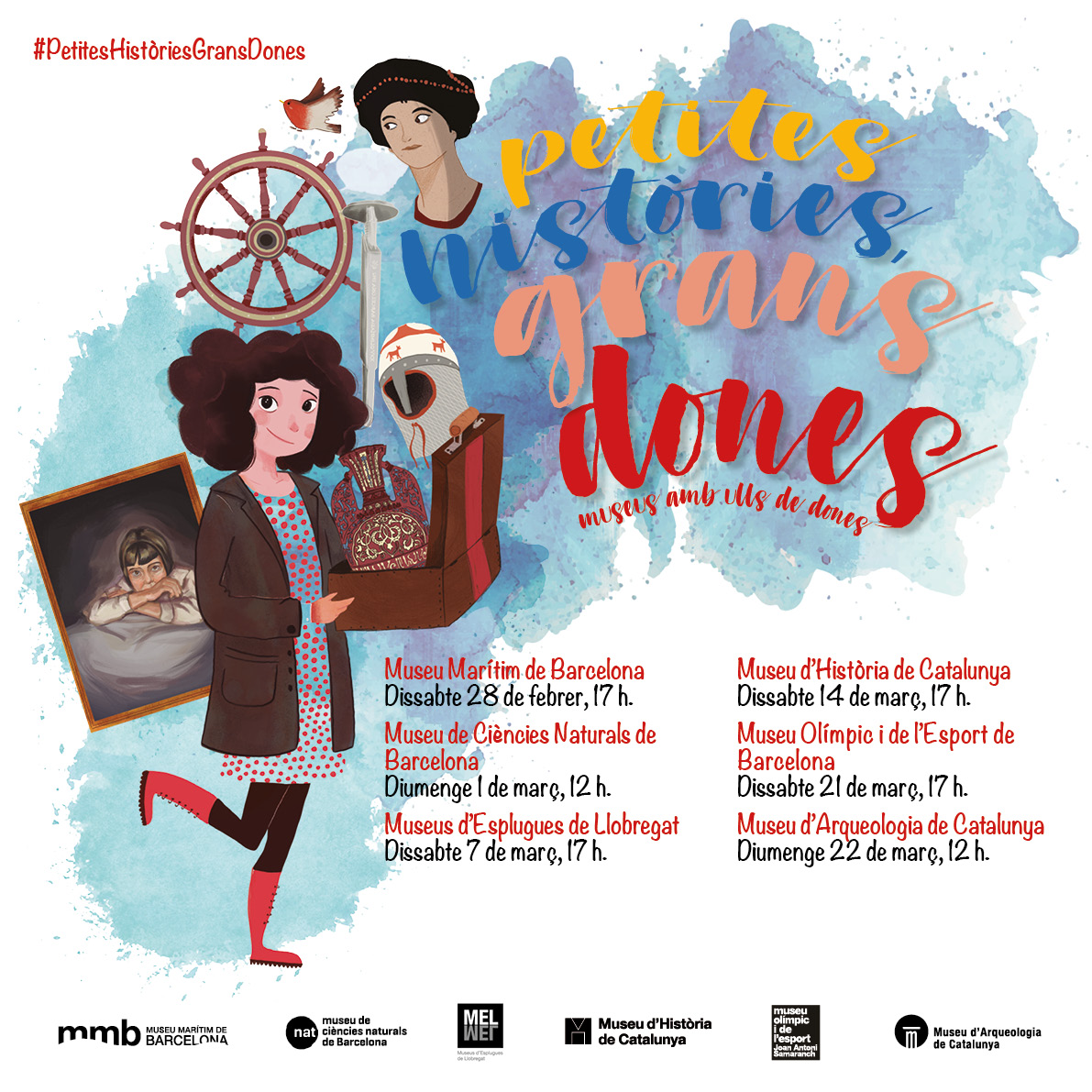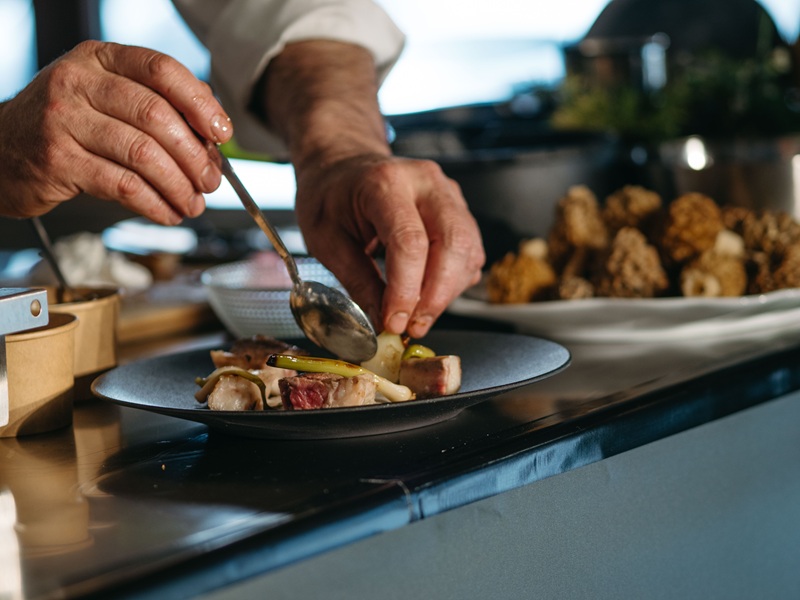The Catalan capital celebrates today the Chinese New Year, a holiday that marks the beginning of the year 4722 according to the traditional Chinese calendar. This year and following the cycle of the Chinese zodiac, we will enter the Year of the Dragon, a symbol of majesty and status in Chinese mythology.
From February 3 to 24, 2024, Barcelona will be filled with activities that will bring us closer to the millenary Chinese culture. Chinese New Year is a holiday of great importance and tradition in the Chinese lunar calendar, and is celebrated all over the world.
In Barcelona, the celebrations will begin on February 3, when neighbors of Chinese origin will join the whole city to welcome the New Year.
Welcome Chinese New Year in BCN
The central event of the celebration will take place on Saturday, February 3 at Passeig Lluís Companys/Arc de Triomf. Throughout the day, from 10 a.m. to 8 p.m., a variety of traditional Chinese cultural performances, such as dances, traditional dances and Kung Fu demonstrations, are scheduled.
In addition, there will be a gastronomic and cultural fair where you can taste typical Chinese dishes and participate in family workshops.
One of the highlights will be the traditional parade, which will start from the Estació del Nord Park at 11:30 a.m. and will go through several streets of the city until it reaches Passeig de Lluís Companys.
This parade will have the participation of a thousand people belonging to more than 65 Chinese federations and organizations in Catalonia, as well as Catalan organizations and associations, showing the diversity and festive spirit of Barcelona.
Barcelona and the Chinese community
The celebration of Chinese New Year has taken root strongly in Barcelona in recent years, where more than 20,200 people of Chinese origin reside. In fact, the Chinese community is the fourth largest nationality in the city.
The dynamism of its associative fabric and the intercultural character of the celebration have made it an outstanding event in the city’s festive calendar.
The Year of the Dragon, which will begin on February 10, 2024 and end on January 28, 2025, will be marked by dragon energy and the wood element. This combination bodes well for a year of innovation, flexibility and change.
It is expected to be a good time to initiate new projects, explore creative interests and take advantage of opportunities for professional growth and development.
The celebration of the Chinese New Year in Barcelona is a reflection of the increasingly close bond between the city and the Chinese community, as well as an opportunity for all Barcelonans to enjoy and learn about the rich Chinese culture.
Origins of the Chinese Year
Chinese New Year, also known as the Spring Festival, is the most celebrated holiday in China. It is also celebrated around the world and, in some countries, is a national holiday. This event is based on the Chinese lunisolar calendar, which is a traditional calendar system used by parts of East Asia. The festive celebrations last 15 days and end with the Lantern Festival. Let’s take a closer look at
What is the Chinese Year?
The Chinese New Year is a traditional agrarian time measurement system that takes place within the 12-year cycle called the Chinese Horoscope. The Chinese Horoscope is a 12-month cycle in which each year is associated with a different animal, or “Chinese zodiac sign”. The 12 zodiac signs are the Rat, Ox, Tiger, Rabbit, Dragon, Snake, Horse, Goat, Monkey, Rooster, Dog and Pig. These 12 animals were designated as part of the cycle by the Jade Emperor as part of the racing competition.
History of the Chinese Year
The beginnings of the associated Chinese Zodiac Year and its significance are believed to date back some 4,000 years. There are several legends surrounding the origin of this popular event, such as the story of Nian, a leviathan-like beast that appeared annually and ravaged the fields, eating crops, livestock and even men, women and children. It is said that villagers were in the habit of creating thunderous noises in an attempt to frighten Nian. Chinese New Year has many associated traditions believed to be related to this legend, such as hanging banners and red lights on doors and windows. This was believed to mimic thunderous noises and the red, silver and gold colors were believed to frighten Nian.
In many cultures, the belief in the prevalence of dragons was widespread, and the Chinese New Year celebration always includes the depiction of the dragon. The Dragon is a symbol of good luck and is believed to attract abundance, health and prosperity. This belief has its origin in the story of the Eastern Dragon, a creature with the ability to attract good fortune and positive energy.
The Celebration
The Spring Festival is usually an annual festival, which begins on or shortly after January 21 and lasts 15 days. Traditionally, at the turn of the year, the Chinese Year of the Lunar Calendar changed its associated animal. However, the official start of the Chinese New Year is not fixed. It is based on the lunar calendar and takes place between January 21 and February 20. This gives the impression that the formal start of the Chinese New Year celebration fluctuates from year to year.
It is traditional for the month of the Fiestas to begin three weeks in advance, when families make preparations for the event. The event usually starts at midnight at the beginning of the New Year and ends on the day of the Lantern Festival. This Festival marks the end of the New Year celebration and is the festival in which lanterns are lit and floated upstream to symbolize good luck and prosperity.
In China, traditional Chinese New Year celebrations included parades with lion and dragon dances and fireworks. Today, it is celebrated with family dinners, gift exchanges and spending time together as a family during the holidays. Chinese New Year marks the end of winter and the beginning of spring, so it is tradition to clean house and get rid of the old to welcome the new during Chinese New Year celebrations.
The Meaning of Chinese New Year
Chinese New Year is among the most respected holidays in the Chinese calendar. It is an opportunity to bring family members together, and is accompanied by many traditional customs and rituals intended to bring good luck to the person celebrating the New Year. Parades and other festivities are symbols of respect for the traditional events and legends surrounding the New Year, as well as a commemoration of good fortune and safe passage into the new year.
The Chinese Year begins with the new moon and brings with it the promise of new beginnings and new possibilities. This celebration is a time to reflect on the accomplishments of the past year, look forward with hope and renewed spirit, and celebrate the coming year with family and close friends. In conclusion, the Chinese Year is a lunar tradition of self-reflection and embracing hope and optimism for the future. Happy New Year to all of you celebrating!




